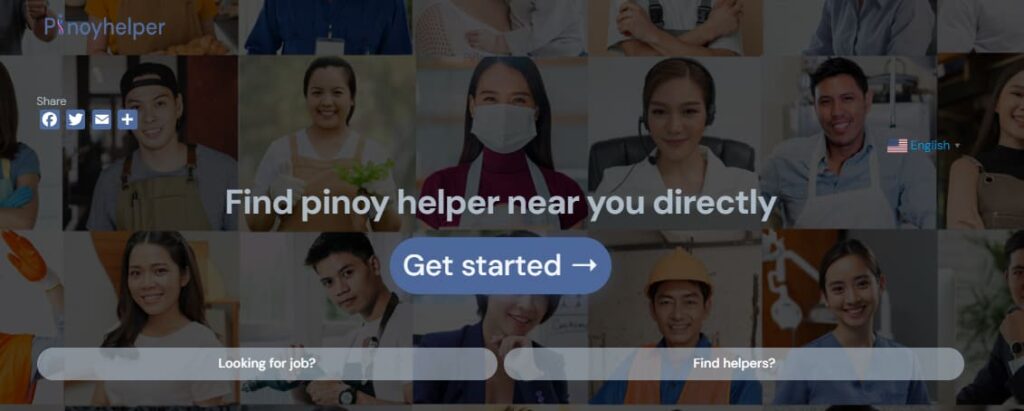
How to Become a Web Developer: A Comprehensive Guide
Table of Contents
1. Learn the Basics of Web Development
Understanding HTML, CSS, and JavaScript is the bedrock of web development. HTML (HyperText Markup Language) is the standard markup language for creating web pages, allowing you to structure content. CSS (Cascading Style Sheets) is used for layout and design, while JavaScript adds interactivity and functionality to websites. There are numerous free and paid resources online, such as Codecademy, freeCodeCamp, and Udemy, offering courses that cater to beginners.
2. Explore Further Programming Languages
After mastering the basics, dive into advanced programming languages. Your focus should depend on your interest:
- For Front-End Development: Enhance your JavaScript skills and learn frameworks like React.js, Angular, or Vue.js, which help in building responsive and dynamic user interfaces.
- For Back-End Development: Learn languages such as Python, Ruby, PHP, or Java. Each has its frameworks, like Django for Python or Laravel for PHP, which streamline the development of server-side logic and database management.
3. Understand Database Management
Web developers must know how to interact with databases. SQL databases like MySQL or PostgreSQL are relational and structured, perfect for complex queries. NoSQL databases like MongoDB offer more flexibility and are suitable for handling large volumes of unstructured data. Understanding when and how to use each type is crucial for efficiently storing, retrieving, and manipulating data.
4. Learn Version Control Systems
Version control is essential for managing changes to code, especially in team environments. Git, a distributed version control system, lets multiple developers work on the same project without conflict. Platforms like GitHub, GitLab, or Bitbucket provide remote repositories and collaboration tools. Familiarity with Git commands and workflows is indispensable for modern web development.
5. Build Projects
Hands-on experience comes from building projects. Start with simple websites and gradually increase complexity. Projects like a personal portfolio, a blog platform, or an e-commerce site can demonstrate your ability to apply what you’ve learned. Use these projects to experiment with new technologies, debug issues, and understand the development lifecycle from planning to deployment.
6. Gain Practical Experience
Internships, freelance projects, or contributions to open-source projects can provide valuable real-world experience. This exposure helps you understand client requirements, work within deadlines, and experience the dynamics of team collaboration. Platforms like Upwork, Freelancer, or GitHub offer opportunities to start working on projects that can improve your skills and expand your portfolio.
7. Stay Updated and Continue Learning
The tech field evolves rapidly, with new frameworks, tools, and best practices emerging constantly. Stay informed by following tech blogs, attending webinars, and participating in online communities like Stack Overflow or Reddit’s web development forums. Continuous learning is key to staying relevant and competitive in the field.
8. Build a Professional Network
Networking can open doors to job opportunities and provide support as you navigate your career. Join local or online web development communities, attend tech meetups, conferences, and workshops. Engaging with peers and industry professionals can offer insights into industry trends, advice on career advancement, and potentially lead to job opportunities.
9. Create a Portfolio
A well-crafted portfolio is your most powerful tool for showcasing your skills and projects to potential employers or clients. It should highlight your best work, including a variety of projects that showcase your range of skills. Include a personal bio, a resume, and contact information. Ensure your portfolio is hosted online and is easily accessible.
10. Prepare for the Job Market
Finally, prepare to enter the job market. Tailor your resume to highlight your web development skills and experiences, prepare for interviews by practicing answers to common questions, and understand the technical requirements of the positions you apply for. Leverage job boards, LinkedIn, and your professional network to find opportunities.
Embarking on a career in web development is an exciting journey filled with learning opportunities. By following these steps, you’ll build a strong foundation in web development, acquire necessary technical and soft skills, and position yourself for success in the tech industry. Remember, persistence, continuous learning, and practical application of your skills are key to advancing in this dynamic and rewarding field.

Web developer job descriptions
A Web Developer is responsible for designing, coding, and modifying websites, from layout to function, according to a client’s specifications. They aim to create visually appealing sites that feature user-friendly design and clear navigation.
Key Responsibilities are the following:
- Develop, test, and implement web applications: This involves writing well-designed, testable, and efficient code by using best software development practices.
- Website and software application designing, building, or maintaining: Directing or performing Website updates.
- Create website layout/user interface: Utilize standard HTML/CSS practices, sometimes incorporating data from various back-end services and databases.
- Gather and refine specifications and requirements: Based on technical needs and client feedback.
- Create and maintain software documentation: Ensuring all documentation is up-to-date and accessible to relevant stakeholders.
- Integrate data from various back-end services and databases: Work with databases, APIs, servers, and other technology to ensure the website functions properly and meets client needs.
- Stay plugged into emerging technologies/industry trends: Apply them into operations and activities, maintaining a cutting-edge approach to web development.
Are you in search of a skilled web developer to bring your digital vision to life?

Look no further than PinoyHelper.com, your premier destination for discovering top-tier web development talent in the Philippines. At PinoyHelper.com, we understand the pivotal role a web developer plays in the success of your online presence, which is why we’ve curated a platform that connects you with the finest professionals in the field. Here’s why PinoyHelper.com is your go-to source for finding the web developer you need:
Unmatched Talent Pool
PinoyHelper.com boasts a vast network of highly skilled web developers from across the Philippines. Whether you’re looking for an expert in front-end aesthetics, back-end functionality, or a versatile full-stack developer, our platform has you covered. Our developers are proficient in the latest technologies and programming languages, including HTML, CSS, JavaScript, React, Angular, Vue.js, Node.js, Python, PHP, and more, ensuring your project is in capable hands.
Rigorous Vetting Process
Quality is our top priority, which is why every web developer on PinoyHelper.com undergoes a rigorous vetting process. This ensures that only the most competent, reliable, and experienced professionals are available to work on your project. We evaluate each candidate’s technical skills, portfolio, and work history to ensure they meet our high standards, providing you with peace of mind and guaranteeing excellent results.
Seamless Hiring Experience
PinoyHelper.com is designed to make your hiring experience as smooth and efficient as possible. Our user-friendly platform allows you to easily search for and connect with web developers that match your project requirements. You can view detailed profiles, portfolios, and reviews to help you make an informed decision. Plus, our dedicated support team is always on hand to assist you throughout the hiring process.
FAQ: How to Become a Web Developer
What is web development?
Web development is the process of building and maintaining websites. It involves work on the appearance (front-end) and functionality (back-end) of websites, making sure they are operational and user-friendly.
Do I need a degree to become a web developer?
While a degree in computer science or a related field can be beneficial, it is not strictly necessary to become a web developer. Many successful web developers are self-taught or have completed online courses, bootcamps, and certifications.
What basic skills should I learn to start in web development?
Begin with HTML (for structuring content), CSS (for styling), and JavaScript (for functionality). These are the foundational technologies every web developer needs to know.
How long does it take to become a web developer?
How long does it take to become a web developer?
Should I learn front-end, back-end, or full-stack development?
Start by understanding both front-end and back-end basics to decide which area interests you more. If you enjoy both and want to manage both sides of web development, pursuing full-stack development could be the right path.
Are coding bootcamps worth it for aspiring web developers?
Coding bootcamps can be a fast track to acquiring web development skills, offering intensive, hands-on training. They can be particularly beneficial for those looking to make a career change quickly but require time and financial investment.
How can I build my portfolio if I’m new to web development?
Start by working on personal projects, like building your website or small applications. You can also contribute to open-source projects or take on freelance projects to gain experience and showcase your skills.
How can I stay updated with the latest web development trends?
Follow tech blogs, participate in online forums, join web development communities, and attend workshops or conferences. Continuous learning is key in a field that evolves as quickly as web development.
Is it possible to work remotely as a web developer?
Yes, web development is well-suited to remote work. Many companies offer remote positions, and freelance web developers often work with clients from all over the world from the comfort of their homes.

